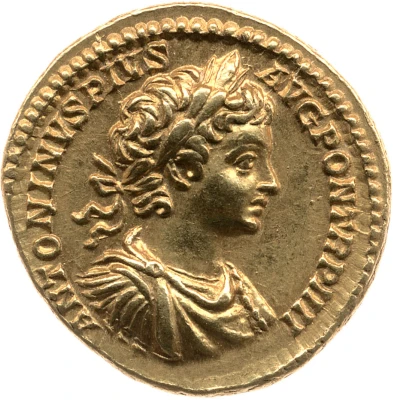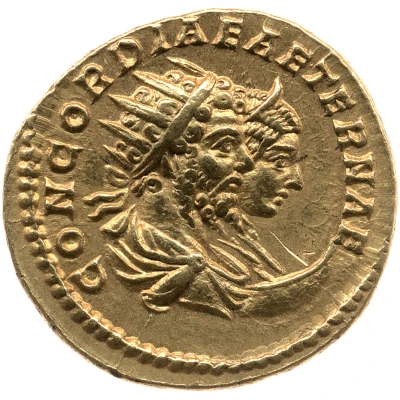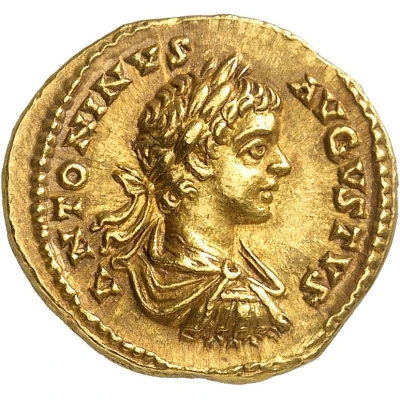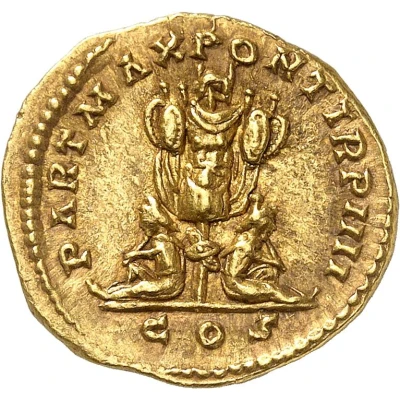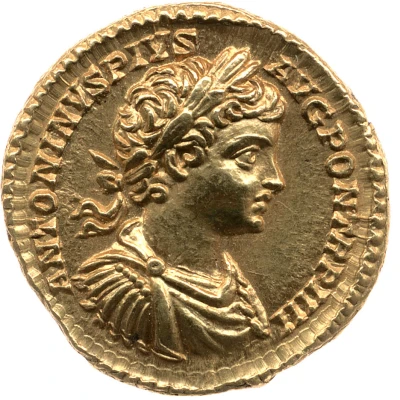
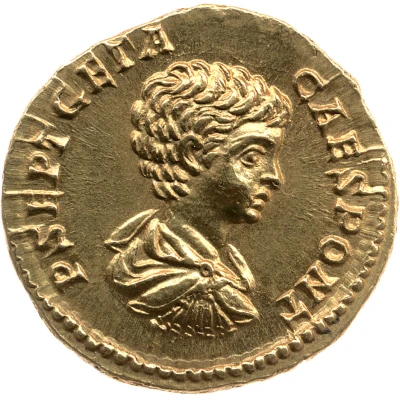

© Trustees of the British Museum
Aureus - Caracalla and Geta P SEPT GETA CAES PONT
201 year| Gold | 7 g | - |
| Issuer | Rome › Roman Empire (27 BC - 395 AD) |
|---|---|
| Emperor | Caracalla (Marcus Aurelius Antoninus Caracalla) (198-217) |
| Type | Standard circulation coin |
| Year | 201 |
| Value | 1 Aureus = 25 Denarii |
| Currency | Denarius, Reform of Augustus (27 BC – AD 215) |
| Composition | Gold |
| Weight | 7 g |
| Shape | Round (irregular) |
| Technique | Hammered |
| Demonetized | Yes |
| Updated | 2024-10-05 |
| Numista | N#273096 |
|---|---|
| Rarity index | 100% |
Reverse
Bust of Geta, bare-headed, draped, right.
Script: Latin
Lettering: P SEPT GETA CAES PONT
Translation:
Publius Septimius Geta, Caesar, Pontifex [Maximus].
Publius Septimius Geta, Caesar, [high] priest.
Comment
Example of this type:Trustees of the British Museum
Source:
Online Coins of the Roman Empire (OCRE)
Interesting fact
One interesting fact about the Aureus coin featuring Caracalla and Geta is that it was issued during a time of great turmoil in the Roman Empire. The coin was minted in 201 AD, just a few years before the death of Emperor Septimius Severus, who had ruled the empire since 193 AD. The coin's issuance marked a period of political instability, as Severus's sons, Caracalla and Geta, were vying for power and eventually succeeded their father as co-emperors. Despite this turmoil, the Aureus coin remained a symbol of the empire's wealth and power, with its gold content and intricate design showcasing the craftsmanship and artistry of Roman minting techniques.
